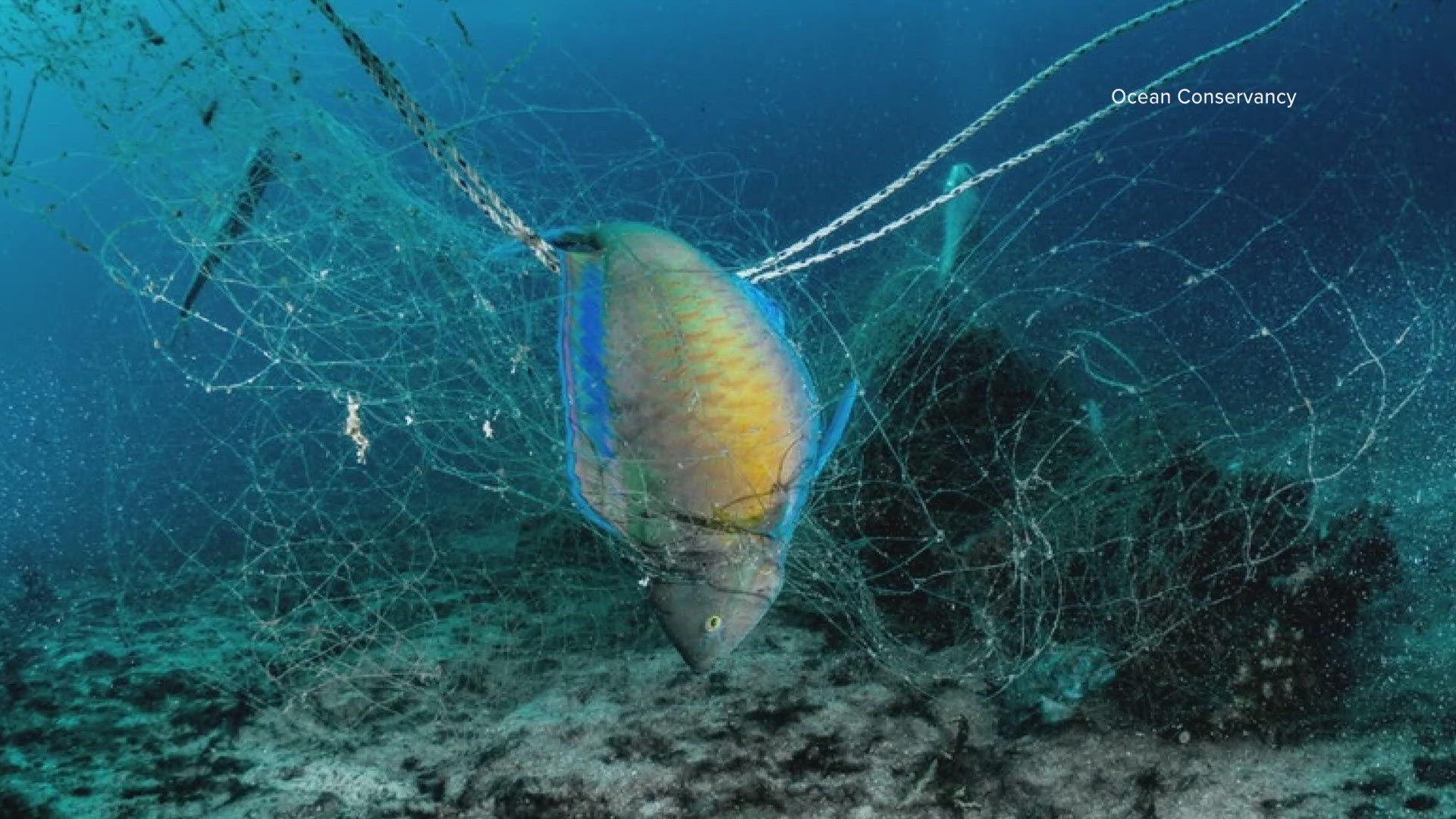WASHINGTON — To get a delicious piece of shrimp, lobster, fish or crab, fisherman usually put down a net or cage to catch the seafood. Sometimes, those nets and crab pots get lost or abandoned at sea, known as "ghost gear."
But long after ghost gear is abandoned, it continues to fish.
"Ghost fishing" happens when the ghost gear continues to trap seafood and marine life, but there's no fisherman to pull it up.
The Chesapeake Bay, lakes and oceans around the world are haunted by ghost gear. Experts with Ocean Conservancy say it's a major contributor to plastic waste in the ocean and this gear often hurts or kills marine life, smothers habitats and acts as a hazard to navigation. Experts with Ocean Conservancy's Global Ghost Gear Initiative said ghost gear is also the deadliest form of marine debris in the ocean.
Lost Crabs
In the Chesapeake Bay alone, a study estimates that there are 145,000 crab pots laying lost in the Bay.
"And those pots collectively kill about 3.3 million crabs annually," said Jaclyn McGarry, senior program manager of the Global Ghost Gear Initiative. "So, if you think about that, that's 3.3 million crabs that aren't on our plates to eat and also not bringing income to fisherman and other parts of the maritime community in the Chesapeake region."
The research found that by removing derelict crab pots from some of the most popular fishing areas in the Chesapeake Bay, the harvest of blue crabs could be increased by 38 million pounds.
Lost fishing gear costs fisherman money. Gear can get lost by being swept up in a storm, currents or getting stuck. Finding the lost or abandoned ghost gear can prove to be tricky McGarry said. She said to find it, scientist sometimes use sonar technology. Fisherman help to remove the gear if they come across it, and sometimes professional divers assist.
The National Oceanic and Atmospheric Administration's Marine Debris Program, has removed 4 million pounds of ghost gear across the U.S.
Ghostbusters
This Halloween, NOAA officials are hoping you will be come a marine "ghostbuster." This includes participating in a community marine clean up or reporting marine debris to your regional marine debris program. You can also report ghost gear with the Ghost Gear Reporter App.

